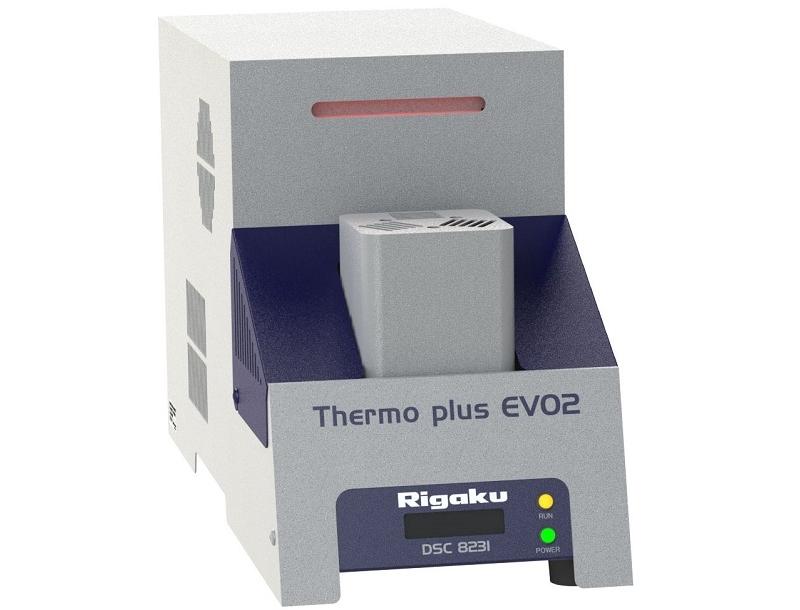DSC8231
DIFFERENTIAL SCANNING CALORIMETER
Determine the amount of heat gained or lost as a result of phase transitions.

Features
- Easy to use operability
- Applicable to variety of specimens such as polymers, liquid crystals, gels, nanoparticles as well as proteins and biopolymers.
- High-power point focus X-ray source
- OptiSAXS high-performance multilayer optics
- HyPix-3000 high-performance 2D HPAD detector
- Superior small angle resolution (Qmin to 0.02 nm-1)
DSC8231
Differential scanning calorimetry (DSC) measures energy changes in reactions including melting, transition, crystallisation, and glass transition temperature, and is mostly utilised in the polymer and pharmaceutical industries for research and development as well as quality control.
Heat-flux kinds are Rigaku’s DSC. Depending on the maximum temperature and sensitivity differential, there are a variety of models to choose from.
Depending on the measurement objective, the high-sensitivity type DSC8231 can be equipped with an LN2 cooling system or an automatic sample changer.
Specifications Table
| Product name | DSC8231 |
| Technique | Differential scanning calorimetry |
| Benefit | Characterize and quantifies the energy of a reaction associated with phase changes |
| Technology | DSC is a thermal analysis technique in which the difference in the amount of heat required to increase the temperature of a sample and reference is measured as a function of temperature. |
| Core attributes | Using this technique, it is possible to observe fusion and crystallization events as well as glass transition temperatures and can be also used to study oxidation, as well as other chemical reactions. |
| Computer | External PC |
| Core dimensions | 210 (W) x 310 (H) x 520 (D) (mm) |
| Mass (core unit) | 15.5 kg (30.5 kg w/ ASC) |
| Power requirements | 1Ø, AC100-120 V/200-240 V 50/60 Hz 5 A |
